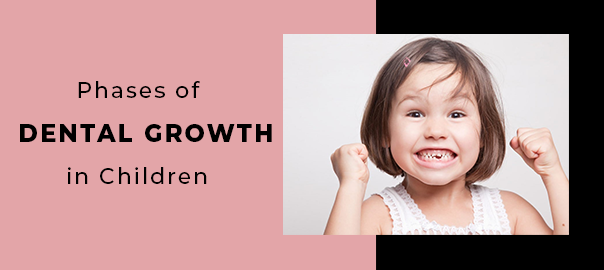
Stages of Tooth Development in Kids
Being parents, all of us have long awaited every milestone in the life of our child, and one of the important journeys, which at times starts right from infancy, is that of tooth development. That cute, toothless smile sure has a long way to go, right up to the set of adult teeth. This blog is going to help in understanding the age when babies develop teeth and how many they have at different ages. We will go through the different stages of tooth development in kids and what one can expect with regards to their care.
Prenatal Tooth Formation
Believe it or not, the development of teeth actually begins even before your child is born. By the sixth week of pregnancy, the baby’s gums develop tooth buds. Those are the future teeth, but they aren’t going to pop out for a while. This is an initial process that gets everything moving with respect to the oral health of your little one.
First Teeth Eruption: 6-10 Months
This becomes exciting when those first tiny teeth start making their appearance. The first ones to push through are the two bottom front teeth, known as the central incisors. They do so usually between 6 to 10 months. During this period, it may be linked to increased drooling, gum soreness, and crankiness.
Tips:
- Gently rub your baby’s gums with a soft cloth.
- Use a baby toothbrush after the eruption of the first tooth.
The Teething Period: 6 Months – 3 Years
This, certainly, is not going to be easy either for the parent or the baby. During this period, different teeth are
going to start finding their way through. This could take months and, in some cases, even years to completely wrap up
until age 3. Though the order varies, generally, incisors, canines, and molars do find their way through the gums. Oral
hygiene habits formed at an early age hold great importance for kids dental health and provide a base for years of confident smile.
Tips:
- Provide teething toys or cold washcloths for comfort.
- Clean emerging teeth with a small, soft-bristled toothbrush and water.
Transition to a Full Set: 3-6 Years
By age 3, most children have a full complement of 20 primary teeth. Good oral hygiene habits should be taught, and
regular dental check-ups should be scheduled. Adequate care at this age lays the basis for a lifetime of healthy teeth
and gums.
Tips:
- Start using a small amount of fluoride toothpaste.
- Try to get your child to brush his teeth at least twice a day.
Losing Baby Teeth: 6-12 Years
This basically includes the first to go: teeth in front at the bottom. Following this are upper front ones. This usually
happens from ages 6 to 7, and then all of the rest start falling, one by one, up until age 12 or so.
Tips:
- Show your child the right way to floss and brush their teeth.
- Monitor the eruption of permanent teeth and seek professional help from a dentist in case of anomalies.
Permanent Teeth: Transition Adolescence
As your child approaches his adolescence, the rest permanent teeth—premolars and molars, and wisdom teeth in some—are going to erupt. Good oral hygiene practices and regular dental check-ups will further help maintain healthy permanent teeth and ensure correct alignment.
Conclusion:
Knowing how many teeth develop in children may enable a parent to help their child through oral development. By
encouraging good dental practices, easing teething pain, and attending regular dental checkups, you set a base for a
lifetime of healthy smiles. Celebrate each toothy milestone with a reminder that just a little bit of care goes a long
way in keeping those pearly whites sparkling.
Clove Dental is one of the prime dental care clinics, housing some of the finest pediatric dentists who go out of their
way to make children feel comfortable and friendly. These doctors realize that early dental interventions, preventive
measures, and good oral hygiene habits are crucial for adoption at a tender age. Clove Dental wants to reassure parents searching for a “kids dentist near me” of ease in access to specialized care for their little ones. Clove Dental is committed to offering full, child-friendly dental care to parents and hence remains in their memory as a trusted destination for specialized pediatric dental care in that area.
Leave a Reply
Leave a Reply
Explore More Similar Posts
Explore More Blogs


Leave a Reply